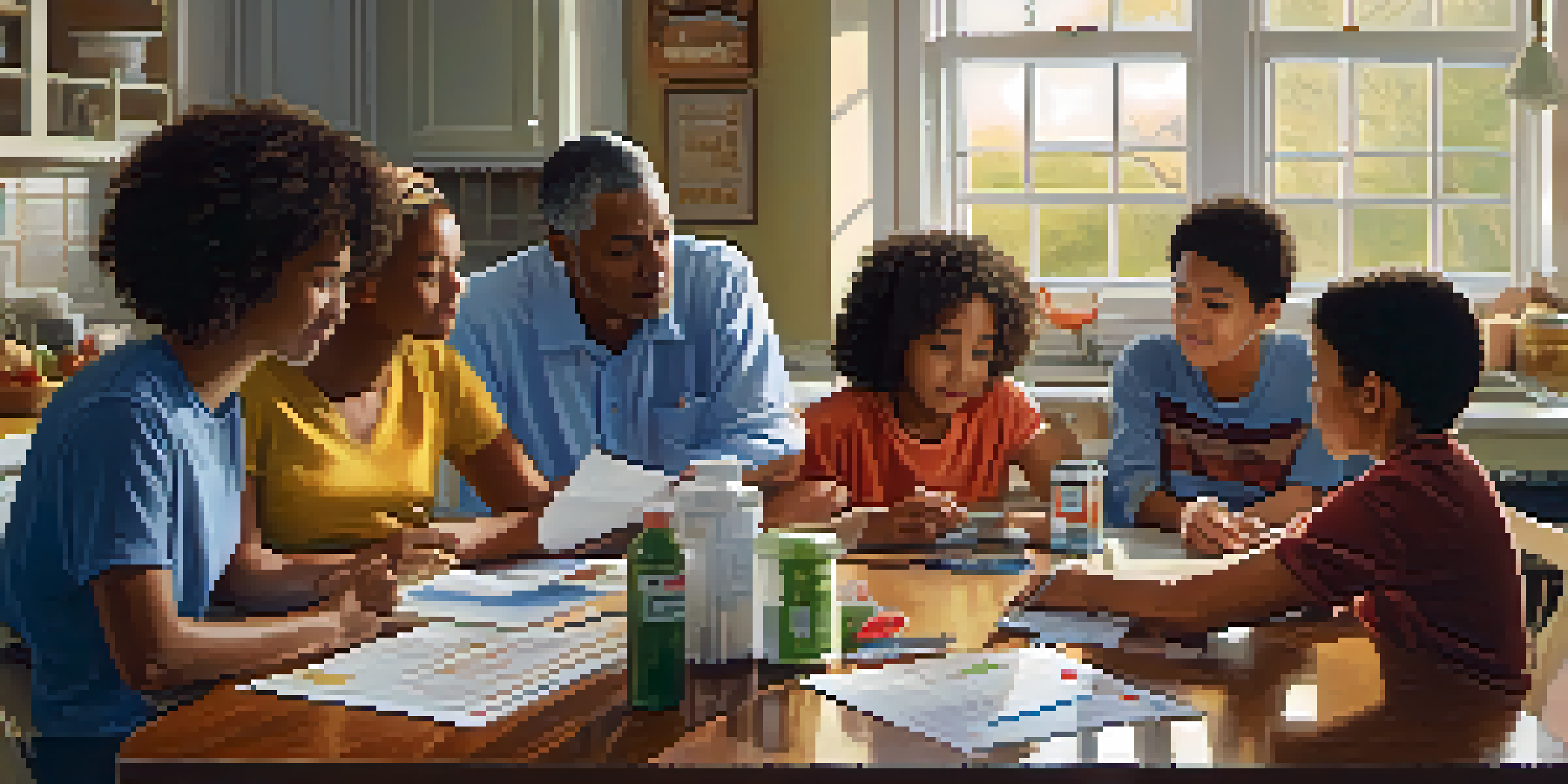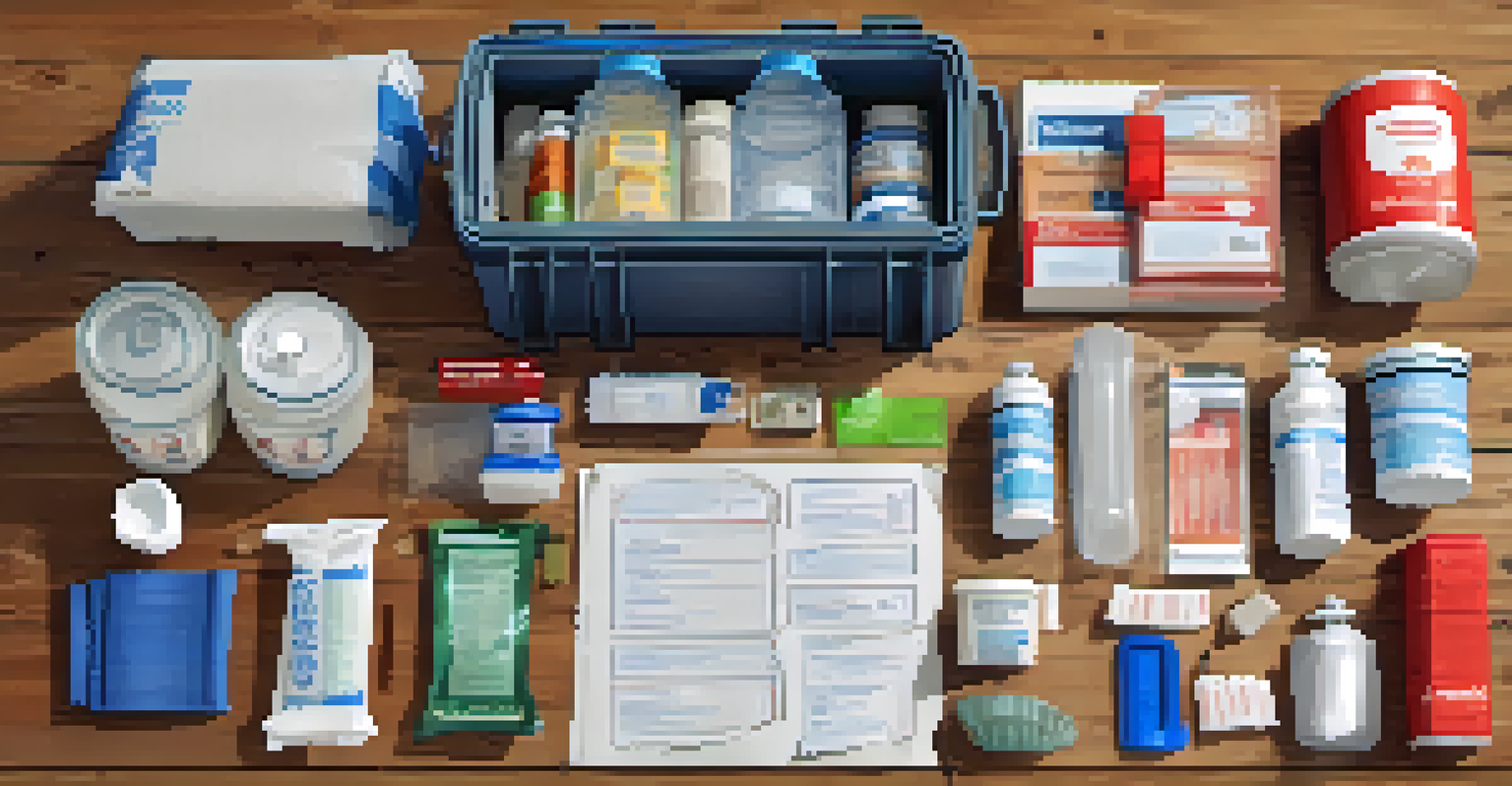Top Resources for Disaster Preparedness in Georgia

Understanding Georgia's Unique Disaster Risks
Georgia is prone to various disasters including hurricanes, tornadoes, and floods. Each of these events carries its own set of risks, making it essential for residents to be well-informed. Understanding these risks can empower Georgians to take proactive steps toward preparedness.
By failing to prepare, you are preparing to fail.
For instance, coastal areas face significant threats from hurricanes, while northern regions may experience severe winter storms. By recognizing the specific risks in your area, you can tailor your preparedness plan accordingly. This knowledge is the first step in ensuring the safety of your family and property.
Moreover, staying updated on weather forecasts and alerts can provide vital information during disaster seasons. Local news stations, weather apps, and government resources offer real-time updates that can help you stay ahead of potential threats.
Key Government Resources for Preparedness
The Georgia Emergency Management and Homeland Security Agency (GEMA/HS) is a crucial resource for residents seeking disaster preparedness information. This agency provides guidelines, tips, and resources to help individuals and families prepare for various emergencies. Their website offers downloadable checklists and plans that can simplify the preparation process.

Additionally, GEMA/HS conducts training and workshops throughout the year, focusing on emergency response and recovery. These programs are invaluable for community leaders and residents alike, fostering a culture of preparedness. Engaging with these resources can build confidence and knowledge within your community.
Understand Local Disaster Risks
Residents should be aware of specific disaster risks in their area to tailor their preparedness plans effectively.
Another great resource is Ready Georgia, a public education campaign aimed at encouraging Georgians to prepare for disasters. It provides practical steps and valuable information to help residents develop their personalized emergency plans.
Local Nonprofits Offering Support and Guidance
Several local nonprofit organizations in Georgia focus on disaster preparedness and response, offering essential resources and support. Groups like the American Red Cross provide training programs, disaster kits, and community outreach initiatives. Their mission is to help individuals be ready for emergencies, no matter the scale.
The time to repair the roof is when the sun is shining.
Furthermore, community organizations often host preparedness events, where residents can learn about creating emergency plans and assembling supply kits. These gatherings not only provide information but also foster a sense of community and shared responsibility.
Getting involved with these nonprofits can also lead to volunteer opportunities, allowing you to contribute positively to your community while enhancing your own preparedness knowledge.
Building Your Emergency Supply Kit
An emergency supply kit is a crucial component of disaster preparedness. It's essential to have a well-stocked kit that can sustain you and your family for at least 72 hours after a disaster strikes. Items such as water, non-perishable food, first aid supplies, and important documents should be included.
To make the process easier, consider using a checklist from trusted sources like GEMA/HS or the American Red Cross. These lists outline all necessary items, ensuring you won't miss anything important as you gather supplies. Having your kit ready to go can significantly reduce stress during an emergency.
Utilize Key Resources for Help
Engaging with government agencies and local nonprofits provides valuable resources and training for disaster preparedness.
Remember to periodically check and update your kit, especially if you have children or pets. Keeping your supplies fresh and relevant is key to ensuring your family's safety when disaster strikes.
Creating a Family Emergency Plan
Developing a family emergency plan is just as important as having supplies. This plan should include how your family will communicate during a disaster, meeting locations, and emergency contacts. Open discussions about your plan can ensure everyone knows their role and responsibilities.
Consider practicing your emergency plan through drills, which can help everyone feel more prepared and confident. Regular practice makes it easier to remember what to do when an actual emergency occurs, reducing panic and confusion.
Additionally, don’t forget to include your pets in your emergency plan. Make sure you have a strategy for their safety and well-being, as they rely on you for protection in times of crisis.
Utilizing Technology for Disaster Preparedness
In today's digital age, technology can play a significant role in disaster preparedness. Mobile apps can provide real-time alerts about severe weather and emergencies, keeping you informed at all times. Popular apps like FEMA and Ready offer personalized notifications based on your location.
Social media also serves as an excellent platform for receiving updates and sharing information about local emergencies. Many local governments and organizations use social channels to communicate crucial information quickly and effectively.
Create a Family Emergency Plan
A well-developed family emergency plan ensures everyone knows their roles and responsibilities during a disaster.
Furthermore, online resources like webinars and virtual workshops are now widely available, allowing you to learn about preparedness from the comfort of your home. Embracing technology can enhance your readiness and ensure that you have the latest information at your fingertips.
Engaging with Your Community for Preparedness
Community engagement is vital for effective disaster preparedness. Forming networks with neighbors can create a support system during emergencies, allowing for better communication and resource sharing. Consider organizing neighborhood meetings to discuss preparedness strategies and share valuable information.
Local churches, schools, and community centers often host preparedness events, which can be a great way to connect with others and learn together. Participating in these events not only boosts your own preparedness but also strengthens community bonds.

Additionally, think about forming a volunteer group dedicated to disaster preparedness. This proactive approach can empower your community and ensure that everyone is ready to face emergencies together.